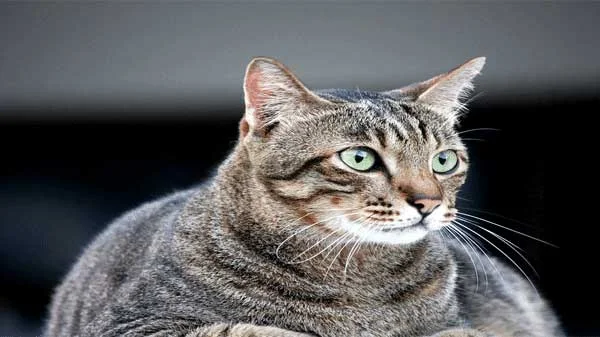 |
| How to know if your cat is overweight or obese |
Like humans and dogs, cats too can be overweight. For the hunter cat, which is by nature agile and mobile, obesity is just as harmful as it is for us. Too much fat on the ribs puts severe strain on the joints, the metabolism is disturbed and a vicious circle begins: if your cat is too big, he will reluctantly move and continue to grow. But what does a diet for overweight cats look like?
How does overweight appear in cats?
The life of our cats has changed radically over the past millennia. Wild cats and free-roaming tigers hunt their own food and stand up all day. In the home, however, cats often lack the stimuli they need to get them moving enough. In addition, they often receive too much food. For example, many owners constantly leave dry food available for their cat, in addition to their daily ration of wet food. No wonder so many cats are overweight! Read also: How to treat ringworm in cats.
How do you know when your cat is too big?
You can use the following rule of thumb:
If your cat's ribs, vertebrae and bones are visible to the naked eye, he is underweight. In an underweight cat, the ribs and vertebrae are easy to palpate. Seen from above, the cat has a narrow size. The ideal is normal weight: the ribs are palpable, but not visible. The body shape should be recognizable, and not covered with fat, and from the top you should see a slightly pronounced waist.
In case of overweight, the ribs are hidden under a thicker layer of fat. The fat on the rounded belly also moves when an overweight cat runs, and its size is no longer recognizable. In the case of significant overweight, the ribs are barely palpable. The fat hides the waist and gives the sides and face a round appearance. The cat has difficulty moving and does so reluctantly, spending a lot of time sleeping and possibly eating more. It's a vicious circle.
If your cat is too big, his body is too heavy. The first step is to make him exercise more. Play with your cat, encourage him to climb on his cat tree or play with a fishing rod and possibly new toys.
The right cat diet
In order for your cat to lose weight, physical exercise must be accompanied by a specific cat diet . But beware: the cat's body can react badly to sudden weight loss. The loss of radical fat can lead to "hepatic lipidosis", a "fatty liver". In addition, overweight cats need fewer calories, but as many vitamins and minerals as their counterparts. The best solution is to buy foods tailored to the needs of overweight cats , which gently help them lose weight without harming their health.
There are many “light” products on the market for overweight cats. These foods contain few calories, but provide enough nutrients for your cat to stay healthy. Additives such as the amino acid L-carnitine can help cats maintain a stable weight. It is important that the food of an overweight cat has a good calcium / phosphorus ratio to preserve the balance of minerals in its body and reduce the appearance of urinary and kidney stones. High-quality proteins keep your cat feeling full, reducing its hunger pangs. Read also: Is your cat sad? Causes and Signs of Cat Depression.
But the "light" is not always good. Low calorie cat food exists in different quality levels. Do not blindly buy the first light product you find, but first take a look at the product label. As a carnivore, cats need a high proportion of high-quality protein in their diet, even when they are on a diet.
They can only use carbohydrates in small amounts. This is why meat, the most important food for cats, should always appear at the top of the list of ingredients. Plant by-products or grains should only appear in small amounts in cat food, as they increase the proportion of unusable carbohydrates.
These weigh more on the cat's draining organs. Take a closer look at the byproducts: "meat and animal byproducts" can include all kinds of byproducts, including stressed organs such as the liver and spleen, even hair or horn.
Your veterinarian can advise you on cat diets. He can determine if and to what extent your cat is overweight, and recommend a suitable method for him to lose weight gently. .
